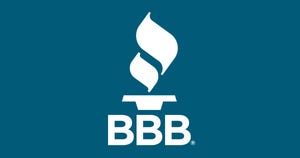
The Better Business Bureau serving the Canton Region and Greater West Virginia offers advice and tips for consumers to avoid deceptive practices.
Scammers know that your online reputation can dramatically affect your business. That is why they have come up with this new trick. Beware of fake copyright infringement notices that prompt you to share your social media credentials.
How the scam works
You receive an official-looking email or direct message on Instagram or another social media platform. The message claims that you have violated the platform’s copyright terms. You must fill out a form immediately, or “your account will be deleted within 24 hours.” In some cases, the scammer may send you an email that appears to come directly from Instagram. In other variations, the fake message comes from the account you allegedly breached. A business owner told BBB.com/ScamTracker about their experience receiving a fake copyright infringement notice on Instagram. “An account sent me a message on Instagram and told me I had to follow a link to fill out an appeal form because I was supposed to have violated some copyright. Against my better judgement, I clicked on the link and it took me to a fake Instagram login page. I messaged the person to ask what happened and they just kept telling me they can’t help me unless I fill out the form with the correct login information.” If you provide your login credentials, scammers will be able to control your social media accounts and impersonate you. They may also try to use the same username and password to access other accounts you own. Or they may also send you follow-up messages asking you to verify other accounts, such as your email.
How to avoid scams on social networks
- Still. Whatever you do, don’t panic. Scammers hope you’ll be so anxious to save your social media account that you’ll do whatever they say without a second thought. Instead, keep your cool and don’t give in to threats or attempts to intimidate you.
- Verify the “violation”. Look into claims before taking action. Log in to your account and look for any official announcements. If the scammer claims to represent a particular account or business, look them up and see if they are associated with suspicious activity.
- Familiarize yourself with the policies of each social media platform you use. If you know how Instagram, Twitter, Facebook, and other platforms handle copyright violations and disputes, you’ll know right away if the proper procedure has been followed or if what you’re reading is questionable.
For more information
Check out BBB’s Social Media Scams Page (www.bbb.org/all/social-media-scams) − a new site dedicated to scams found on social media! Read our tips for spotting email (www.bbb.org/all /spot-a-scam/how-to-spot-a-scam-email) and social media (bit.ly/fakesocialmediaaccount) scams. Find out how to protect yourself from similar evils by reading about phishing scams.
For information BBB
Visit bbb.org/canton or call 330-454-9401 to search for a business, file a complaint, write a customer review, read tips, find our events, follow us on social media and more!



